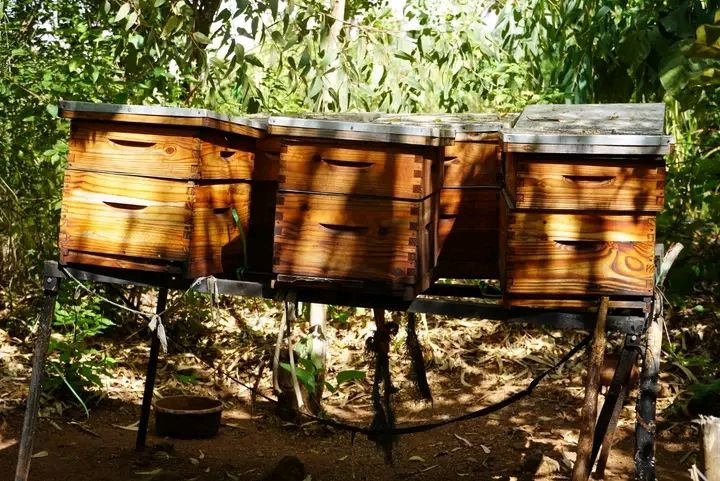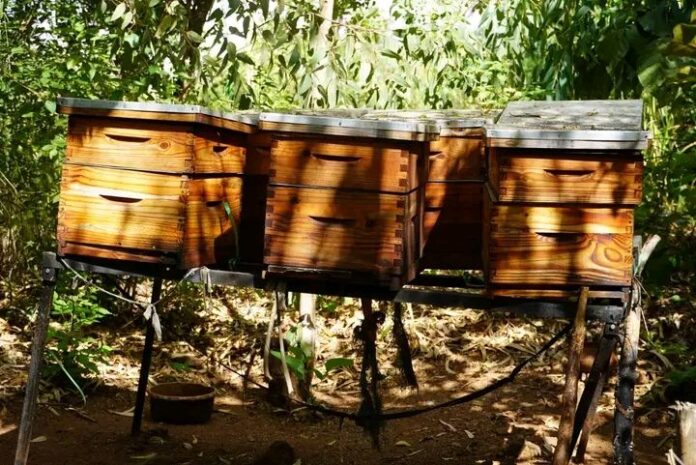By Jones Gadama
In a bid to promote sustainable livelihoods and reduce pressure on natural resources, African Parks, in partnership with Honey with Heart, has been scaling up beekeeping initiatives in communities surrounding Liwonde National Park and Mangochi Forest Reserve.
The project has not only provided an alternative source of income for local communities but has also contributed to the conservation of the two ecosystems.
Since 2019, the project has distributed 700 beehives to 300 beekeepers, with a total of around 789 beekeepers now operating around the two ecosystem complex.

According to Clement Mnandi, Project Coordinator for Honey with Heart, the initiative has been a game-changer for local communities.
“We are thrilled to see the impact of our beekeeping project on local communities,” Mnandi said, adding that,”Not only are they earning a sustainable income from honey production, but they are also becoming more invested in the conservation of their natural resources.”
One of the beneficiaries of the project is Siginala Yusuf, a beekeeper from Minyanga village in Traditional Authority Jalasi in Mangochi district.
Yusuf’s profit from honey production has grown significantly since she started participating in the project, from K250,000 in 2019 to slightly over K1 million in 2024.
“I am thrilled with the progress I have made through this project,” Yusuf said.
“Beekeeping has not only improved my livelihood but has also given me a sense of purpose and fulfillment,”he added.
The project is not limited to beekeeping alone. According to Shaibu Kadewere, Liwonde Parks Manager, African Parks is promoting other income-generating activities, including goat farming and chili farming, in addition to providing employment opportunities to locals and bursaries to vulnerable students around the two ecosystems.
“Our goal is to create a sustainable and mutually beneficial relationship between the local communities and the protected areas,” Kadewere said, adding that,”By providing alternative livelihoods and supporting local economic development, we can reduce the pressure on natural resources and promote conservation.”
African Parks took over the management of Liwonde National Park in 2015 and Mangochi Forest Reserve in 2018 through a Public-Private Partnership arrangement.
Since then, the organization has been working closely with local communities to promote conservation and sustainable livelihoods.
The partnership with Honey with Heart has been instrumental in scaling up beekeeping initiatives in the area.
The project has not only provided training and equipment to local beekeepers but has also helped to establish a thriving honey industry in the region.
The impact of the project goes beyond just economic benefits. By providing alternative livelihoods and promoting sustainable land use practices, the project is contributing to the conservation of Liwonde National Park and Mangochi Forest Reserve.
This, in turn, helps to protect biodiversity and ecosystem services, which are essential for the well-being of local communities.
As the project continues to grow and expand, it is clear that the partnership between African Parks and Honey with Heart is having a lasting impact on local communities and the environment. With the support of local communities, conservation efforts can be successful, and the benefits of conservation can be shared equitably.
The success of the project serves as a model for other conservation initiatives in the region.
By working together with local communities and promoting sustainable livelihoods, it is possible to achieve conservation goals while also improving the lives of local people.
The beekeeping initiative implemented by African Parks in partnership with Honey with Heart is a shining example of how conservation and sustainable livelihoods can go hand-in-hand.
As the project continues to thrive, it is hoped that it will inspire other conservation initiatives to follow suit and work towards creating a better future for both people and the environment.



